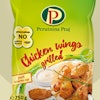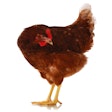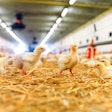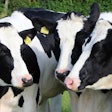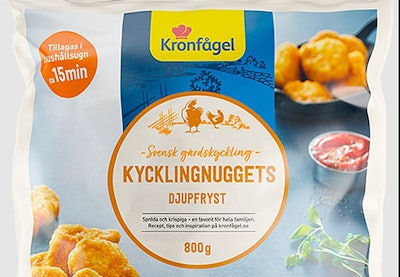
Despite double-digit year-on-year increases in sales, Scandi Standard reports significant reductions in operating income for the second quarter and the first half of the company’s financial year. Changes are reported based on constant exchange rates.
For the January-June period of 2022, net sales were 5.858 billion Swedish krona (SEK; US$547 million). This represents an annual increase of 16%. However, Earnings Before Interest and Taxes (EBIT) for the period was down 52% at SEK79 million. Compared to the same period of 2021 at 3.2%, EBIT margin was reported at 1.3%.
While income for the six months was SEK17 million, earnings per share were SEK0.18. These figures compare with SEK95 million and SEK1.44, respectively, for the first half of 2021.
Adverse impacts on second-quarter results
According to Scandi Standard, its fiscal results for the April-June quarter were hit by three major developments.
Among these was SEK26 million in the write-down in fixed assets in the Republic of Ireland. Furthermore, there were costs of SEK19 million relating to a dispute over an old contract in Finland, and SEK10 million resulting from a fire at the company’s plant in Farre, Denmark.
As for other businesses, the company continues to be impacted by the Russian invasion of Ukraine through the rising costs of many inputs, energy and transport.
According to Jonas Tunestål, the firm’s managing director and CEO, Scandi Standard managed these developments well. It has successfully achieved price adjustments over recent quarters to mitigate the cost price inflation, he reported.
Also during the latest quarter, Scandi Standard secured long-term financing. Totaling SEK2.09 billion over a five-year term, this relates to credit facilities linked to sustainability, the company reports.
Year-on-year, the firm’s EBIT for the second quarter was reduced by 44% to SEK42 million, despite achieving a 19% increase in net sales. As a result, EBIT margin was 1.4% — down from 2.9% for the same period of 2021. Compared with SEK41 million the previous year, quarterly income was SEK7 million. Meanwhile, earnings per share fell from SEK0.61 to SEK0.07 for the April-June period.
Feed efficiency, health and welfare trends
Included in Scandi Standard’s financial reports are figures for feed efficiency (expressed as kg feed per kg liveweight).
For both the second quarter and the first half of the current fiscal year, the company gives the figure of 1.50. This represents a 1% improvement from the 1.52 reported for the corresponding periods of 2021.
In contrast, Tunestål reported adverse developments in two other sustainability indicators. Mainly attributing these to one external supplier in Ireland, he said that antibiotic usage and foot pad scores had deteriorated during the latest quarter. To rectify this diversion from the earlier improvement curve on bird health and welfare, the company has introduced a series of measures.
Company faces improving prospects
Despite the general economic situation in Europe, Tunestål forecasts that upcoming opportunities will allow Scandi Standard to return to normal profitability during the second half of 2022.
According to him, the market is favorable for the company, as well as the production of chicken as a “healthy and climate-smart protein.” Among the key factors is the relative short production cycle for broilers compared with beef or pork, and the resulting faster achievement of cost increases.
Looking further ahead, Tunestål sees potential for increasing the value of each bird processed by Scandi Standard.
In order to transition to higher and stable levels for margins, he sees a need for increased focus on four key areas.
“The transition requires additional focus on the right culture, governance and leadership, on efficiency throughout the entire value chain, on developing the product portfolio in order to improve the yield from our input materials as well as on our positioning, where sustainability is an important common denominator,” according to the CEO.
More on Scandi Standard
In its first-quarter report of the current year, Scandi Standard reported higher sales, improved broiler efficiency, and the prospects of export growth.
For the last financial year, sales were up 3% year-on-year at SEK10.1 billion but EBITDA was 14% lower than in 2020 at SEK598 million.
With annual slaughterings of 205 million birds, Scandi Standard is among the top 15 poultry producers in Europe, according to WATTPoultry.com’s Top Poultry Companies survey.
At a recent extraordinary general meeting, Paulo Gaspar was elected as a member of Scandi Standard's Board of Directors. Nominated to this position last month, Gaspar represents Grupo Lusiaves, which is Scandi Standard's second largest shareholder.
Founded in 1986, Grupo Lusiaves is a vertically integrated poultry producer based in Portugal. According to the Group’s website, its annual production includes 6.5 million broiler chickens, 1.8 million meat turkeys, and 450,000 metric tons of feed.

